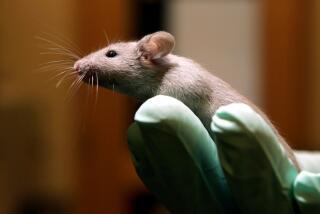Human Embryo Cloning Attempted
- Share via
A team of American researchers has quietly begun trying to create the world’s first batches of cloned human embryos, and another team has resumed its controversial cloning of embryos that are part human and part cow, according to scientists involved in the work.
The privately funded work is part of a new surge of human embryo research aimed at developing novel treatments for diseases--but which some scientists believe could be inadvertently paving the way to the first births of cloned babies.
The work is a vivid reminder that while Congress, the National Institutes of Health and a presidentially appointed bioethics commission debate the finer points of whether federal dollars should be spent on certain types of human embryo research, the private sector is rapidly moving forward to capitalize on the potentially lucrative field.
The two companies that have started the programs to grow their own embryos, Geron Corp. of Menlo Park, Calif., and Advanced Cell Therapeutics of Worcester, Mass., are not trying to make full-grown human clones or human-cow hybrids. Rather, the goal is to use the newly cloned embryos as sources of embryonic stem cells, a recently discovered kind of cell that is thought to have the potential to treat a host of chronic ailments, including diabetes and Parkinson’s disease.
Nonetheless, the two programs are the first concerted, open efforts to create human embryos by cloning. They also appear to be the first instances of scientists creating human embryos explicitly for the purpose of harvesting medically useful cells--a practice President Clinton banned among federally funded researchers 4 1/2 years ago but that remains legal in the private sector.
Adding to the contentious nature of the work is the widely held suspicion that the new experiments will inevitably, and perhaps very quickly, help others overcome the remaining technical hurdles to cloning human beings.






